The NGIAtlantic.eu project has ended in February 2023. For the follow-up initiative, visit NGI Transoceanic.
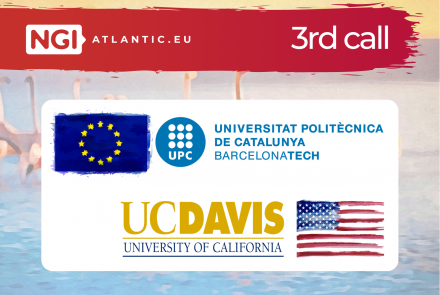
Project Coordinator (EU) :
UNIVERSITAT POLITECNICA DE CATALUNYACountry of the EU Coordinator :
SpainOrganisation Type :
AcademiaStarting date :
Experimental Assessment of Fast Quantum Key Distribution
Privacy and Trust enhancing technologies
Quantum Key Distribution (QKD) is being used to enhance security between trusted users. One of the most fundamental QKD protocols is BB84, which uses single polarized photons as qubits. Polarized photons passing through a fiber between quantum transmitter (QTx) and quantum receiver (QRx) might be distorted in case of fiber movement affect the State of Polarization (SOP), which deteriorates the Key exchange rate. A novel QKD method that includes an Artificial Intelligence (AI) -based polarization distortion compensator module (named Fast QKD) is to be experimented in a testbed equipped with the needed instruments and devices UCDavis California, US.
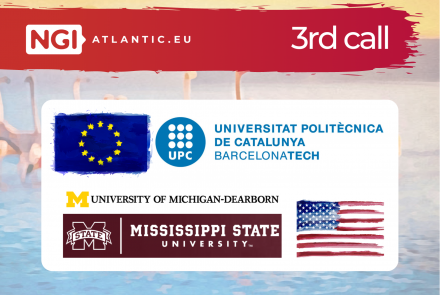
Project Coordinator (EU) :
UNIVERSITAT POLITECNICA DE CATALUNYACountry of the EU Coordinator :
SpainOrganisation Type :
AcademiaStarting date :
Adaptive decentralized federated learning in wireless mesh network (FLESHNET)
Decentralised data governance - experimentation of results
The overall goal of the FLESHNET project is to deliver building blocks for adaptive decentralized federated learning experimentally validated in the realistic conditions of a wireless mesh network testbed. Both the EU and US partners will participate in the analysis of the experimental results. The design will be complemented by the US partners with the networking perspective, while the EU partner will complement the design with an adaptive and decentralized model.
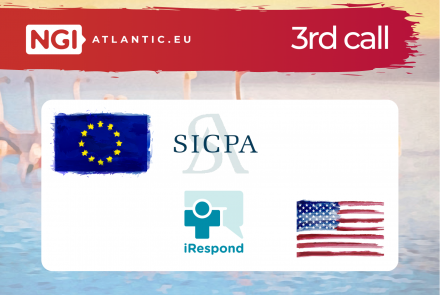
Project Coordinator (EU) :
SICPA SPAIN S.L.Country of the EU Coordinator :
SpainOrganisation Type :
SMEStarting date :
Inclusive verification of cross-border and level of assurance-dependent digital credentials
Decentralised data governance - experimentation of results
This experiment brings together researchers on both sides of the Atlantic, iRespond and SICPA, to connect different platforms and test security features—in this case European digital signatures, already used in legacy systems, and privacy-preserving biometric tools— to showcase enhanced levels of assurance for secure transmission of verifiable credentials across geographic boundaries.
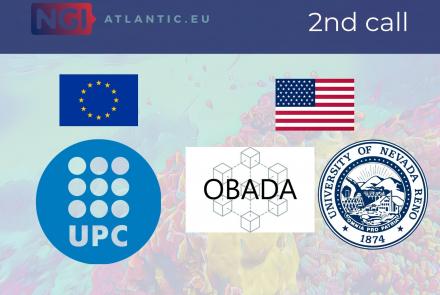
Project Coordinator (EU) :
Technical University of CataloniaCountry of the EU Coordinator :
SpainOrganisation Type :
AcademiaDecentralized data ecosystem for the Open Blockchain for Asset Disposition Alliance
Decentralised data governance - experimentation of results
More than 6 billion new ICT goods are sold annually worldwide. We cannot afford by 2030the current growth of ICT devices. Decarbonisation is a must to tackle the environmentalcrisis and comply with the 1.5°C global warming objective described by the IPCC SpecialReport (Paris Agreement).Therefore, we need to create effective market ecosystems capable of reusing ICT devices,extending their lifespan for new uses, instead of always manufacturing new ones, throughreuse, repair, and ensure final recycling in a sustainable way.Our NGI eReuse-Ledger testbed is a permissioned distributed ledger to experiment aboutdevice traceability.
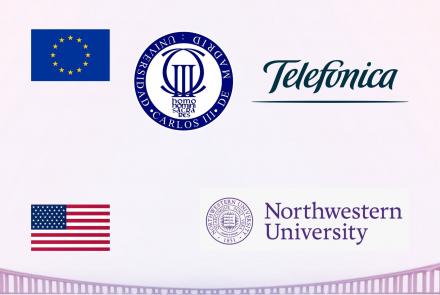
Project Coordinator (EU) :
Universidad Carlos III de MadridCountry of the EU Coordinator :
SpainOrganisation Type :
AcademiaStarting date :
Measuring Multi-Carrier Cellular Access International Roaming Performance
Discovery and identification technologies
Multi-Carrier Cellular Access (MCCA) providerssuch as GoogleFi irruptedrecentlyin the mobile Internet access market claiming to offer enhanced performance at reduced prices. MCCAproviders dynamically attach to different carriers based on real time measurements of performance.The goal of the project is to do an experimental comparativestudy ofthe performance of these emerging MCCAproviders and the incumbent cellular providerswith a specialfocus on the performance while roaming.The proposed methodology is to acquire MCCAservices and traditional mobile services in the US and experimentallycompare theirperformance bothat home (US) and while roaming (EU).
